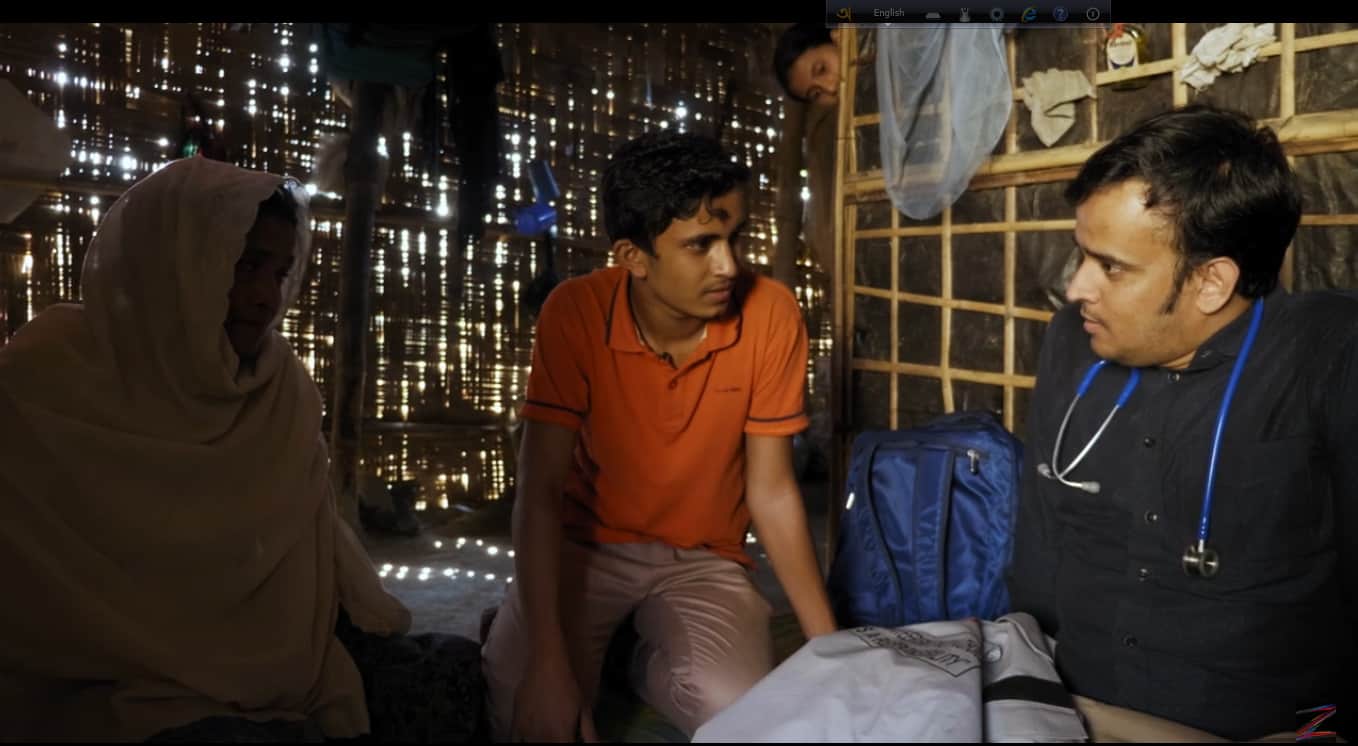Supported by Sundance, DMZ Docs and Xining First International Film Festival, and with Nanfu Wang acting as consulting editor, Dongnan Chen's feature film had all the prerequisites of becoming a great documentary, also because its central theme is quite interesting.
“Keep Running” had its international premiere at the Thessaloniki Documentary Film Festival

The film takes place in Little Well Villlage, on the barren mountaintops of Southwest China. This is one of the few places the Miao people have managed to live in, after painful migrations following their losing war with Han, the Chinese majority. Their persecution was so intense, that the Miao essentially lost their identity, including their written language, while even their current name is actually given to them by the Chinese authorities. The arrival of western missionaries in the 1930s stripped them of the last folklore they had, and substituted it with Christianity, essentially deeming them identity-less. One thing however remained, their traditional singing about the hardships they had suffered through the centuries.
As the documentary begins, propaganda minister Zhang, who discovered the Little Well choir by chance, aims at making them a nation-wide sensation, essentially to attract tourists and renovate the rather poor area. To do so, he even brings a Beijing conductor to help in the rehearsals, something which seems to create a number of problems in his cooperation with the locals, while soon the choir members find themselves singing “Mamma Mia” on a nationally televised talent show. As their fame increases, their bonds with their past become increasingly thinner, while the coming of a contractor in the area causes even more problems.

Apart from the history, as narrated through their songs, and their life in general, Dongnan Chen also concentrates on a number of Miao individuals. A young man who is the only one of his friends who has not been married, finds himself in an arranged marriage with a girl who had her doubts about him. A young girl, who was always considered one of the most beautiful in the village, gets married to a man from another village and has a son with him. Eventually, a local official asks her to help build their own choir, drawing from the fame of the Little Well one, who will sing songs, however, about Communism and the Party. Her husband does not want to let her go, being jealous of the official, but the girl does so anyway, bringing much friction in their household. Conductor Long is probably the most famous and respected member of the group, who does not however, enjoy the publicity at all, with the fact that he has to get photographed with unknown people during the participation of the choir in a concert in Beijing highlighting the fact in the most eloquent fashion. The same trip also brings the poor members of the choir face to face with how expensive the world outside their village is.
Subtly, mostly through brief scenes and some details that appear mundane initially, but pointedly and eloquently, Dongnan Chen creates the portrait of a people who have been persecuted for centuries, but have now found themselves in another kind of “torture”, being paraded by minister Zhang, who boasts about their success as much as about his contribution. The fact that they manage to see the world, with Zhang taking them to Beijing for example, seems like an opportunity for them, but essentially is nothing but a chore, since the mandatory showing off highlights the fact that this is a parade essentially. The scene where Long asks to leave the reception but has Zhang telling him that he needs to stay more is indicative of what exactly is happening there. Another very brief scene between the two men, with the former mentioning some complaints about the way the choir's income is allocated, sheds even more light on the whole situation. Lastly, the fate of the contractor's projects, which was already met with protests for the decrease in agricultural space it would create, cements the fact mentioned in the beginning of the paragraph.
Apart from the people as a whole, the various individuals that come to focus, and their overall situation, Chen also focuses on the songs as pieces of music, with the polyphonic sounds of the choir functioning as the soundtrack of the movie, while DP Jisong Li also takes care of highlighting both the beauties and the poorness of the particular location.
Li and Cheng follow the various individuals quite closely, highlighting the level of trust they gained from their subjects, with them occasionally capturing their most intimate moments. At the same time, however, their approach and the way the remarks are communicated, seem to create a distance from the “protagonists” essentially making it very difficult to empathize with them. This element detracts from the impact the documentary could have, making it observational in a way that is not particularly artful, although Chen's effort to intervene as little as possible justifies this approach and is actually met with significant success. Emelie Mahdavian's editing is quite good, with the way the various footage are connected and the overall pace helping much in the entertainment it offers, although the movie would definitely benefit from some trimming, since, at 99 minutes, somewhat overextends its welcome.
“Singing in the Wilderness” has some issues, while its approach definitely demands unwavering attention from the viewer, since Chen has adopted the “devil is in the detail” style fully. However, the presentation of this rather unknown issue is quite good, while the critique, quite accurate.














